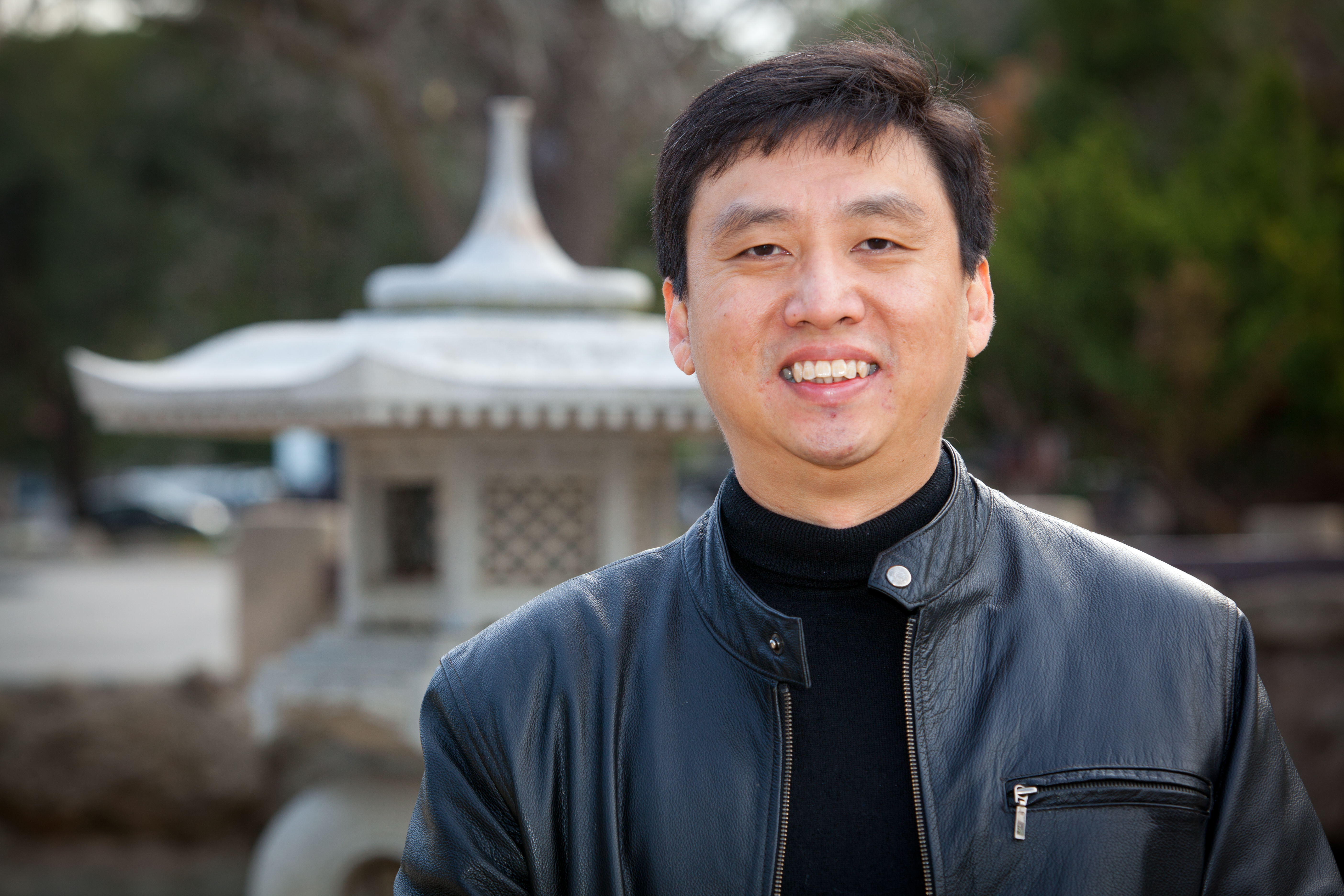Finding Happiness is an editorial package that explores what it means to be happy in today’s world. As part of it, we’re asking people known for their work on well-being and happiness to answer 7 questions about what happiness means to them. Here’s Chade-Meng Tan, Google pioneer, award-winning engineer, international bestselling author.
Thrive Global: What does happiness mean to you?
Chade-Meng Tan: My favorite definition for happiness comes from the Buddhist monk Matthieu Ricard, known in the press as the “Happiest Man in the World.” He defines happiness as, “a deep sense of flourishing that arises from an exceptionally healthy mind…not a mere pleasurable feeling, a fleeting emotion, or a mood, but an optimal state of being.” That is also the definition of happiness I use for myself in my daily life.
TG: Are you living life according to the way you’ve defined happiness?
CMT: Yes, I try to. Given that the key to happiness is an exceptionally health mind, I try to keep my mind in good shape every day with a combination of mindfulness meditation and loving-kindness practice.
TG: If you had to pick one thing to tell the world about happiness, what would it be?
CMT: That happiness is a highly trainable skill. We are not stuck with the level of happiness we are born with. With proper training, we can dramatically increase our level of “baseline happiness.” I myself went through that process. In the past, if nothing was happening, I was miserable. Today, if nothing is happening, I am jolly. The proper mental training enabled me to move my baseline happiness from misery to jolliness.
TG: How does our culture’s definition of happiness play a role in our ability/inability to be happy? What cultures set a better/worse example?
CMT: The problem with our culture is we, as a society, wrongly equate happiness with pleasure of the senses and pleasure of the ego. Hence, we define happiness in terms of sense pleasures (eg, “happiness is eating chocolate or having sex”) or with fluffing of the ego (“happiness is when I feel successful and admired”). Unfortunately, all joy that arises from sensual and ego pleasures are necessarily impermanent and fragile, so if we equate happiness with those pleasures, we will always be chasing bubbles, and we will never be truly happy.
I have a lot of admiration for how the Bhutanese culture approaches happiness in a holistic way. They understand that happiness relates not just to sensual and ego pleasures, but also to meaningful, caring relationships with people and with mother earth. Also, unlike us in the West, they don’t shy away from thinking about death. Instead, a daily recognition of the inevitability of death is part of their approach to happiness. Most importantly, being a Buddhist culture, they have a better understanding of how mind training can make dramatic differences to one’s happiness. I think there is a lot we can learn from them.
TG: Do you view happiness as the ultimate human pursuit? Why or why not?
CMT: I view the complete liberation from suffering, for self and for all sentient beings, as the ultimate human pursuit. Happiness is merely a fortunate side-effect of that pursuit.
TG: What’s your favorite happiness quote?
CMT: “Life is too important to be taken seriously.” — Yours truly
My other favorite quote:
“If you want others to be happy, practice compassion. If you want to be happy, practice compassion.” —Dalai Lama
TG: When were/are you the happiest?
CMT: When my mind is at peace, my heart is filled with kindness, and my actions are motivated by compassion.
Chade-Meng Tan (Meng) is a Google pioneer, award-winning engineer, international bestselling author, thought leader and philanthropist. He retired from Google as its Jolly Good Fellow at the age of 45. He is Chairman of the Search Inside Yourself Leadership Institute and Co-chair of One Billion Acts of Peace, which has been nominated eight times for the Nobel Peace Prize. He is also Adjunct Professor at the prestigious Lee Kuan Yew School of Public Policy in the National University of Singapore.
At Google, Meng led the creation of a groundbreaking mindfulness-based emotional intelligence course called Search Inside Yourself, which was featured on the front page of the Sunday Business section of the New York Times. Search Inside Yourself is also the title of Meng’s New York Times bestselling book which has been endorsed by world leaders such as President Carter of the United States, business leaders such as Eric Schmidt of Google and John Mackey of Whole Foods Markets, and spiritual leaders such as the Dalai Lama. Meng hopes Search Inside Yourself will eventually contribute to world peace in a meaningful way.
Meng delivered a TED talk on compassion at the United Nations and spoke at the White House about the development of kindness. His personal motto is, “Life is too important to be taken seriously”.
Meng hopes to see every workplace in the world become a drinking fountain for happiness and enlightenment.


